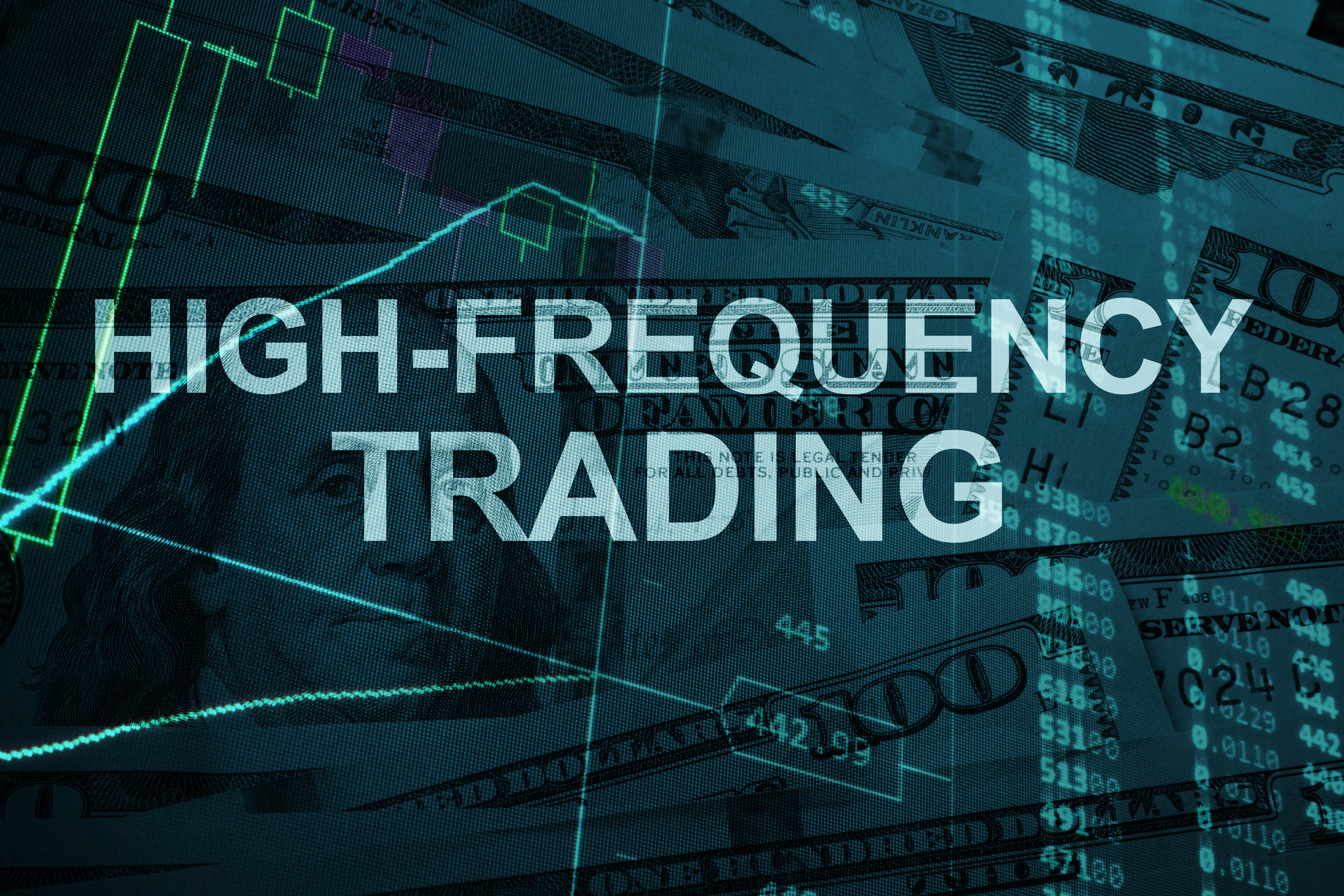High-frequency trading (HFT) uses algorithms and extremely fast connections to make rapid trades, often in fractions of a second. It frequently involves the use of proprietary tools and computer programs that analyze markets, identify trends, and execute trades for very short-term gains. We’ll discuss the characteristics of high-frequency trading, strategies, pros and cons, and examples of how high-frequency trading has affected markets.

What is high-frequency trading?
High-frequency trading (HFT) takes advantage of proprietary computer algorithms and super-fast (and often proprietary) connections to analyze securities, identify opportunities, and execute trades for extremely short-term gains.
HFT has become more common as computers have become more sophisticated, and innovations such as fiber-optic cables have helped give some traders an edge when it comes to exploiting market trends that appear and disappear within fractions of a second.
The Securities and Exchange Commission (SEC) lists five criteria to describe HFT:
- Use of high-speed, sophisticated programs to generate and execute trades.
- Use of individual data feeds and co-location services to ensure maximum speed.
- Short time frames for buying and selling.
- Submission of multiple canceled orders.
- Ending the trading day with little (if any) significant, unhedged positions.
HFT strategies
HFT makes extensive use of arbitrage, or the buying and selling of a security at two different prices at two different exchanges. Although the strategy can be extremely risky, even a small difference in price can yield big profits. HFT algorithms can detect very small differences in prices faster than human observers and can ensure that their investors profit from the spread.
In his classic 2014 book, Flash Boys, author Michael Lewis describes three main types of arbitrage used by high-frequency traders:
Slow-market arbitrage: Traders can use fast connections to take advantage of different data speeds at different exchanges. Since not all exchanges operate at the same speed, there are often price differences among them, especially in foreign markets. Slow market arbitrage, however, has turned into a bit of an arms race, with hedge funds spending millions for high-speed connections that will provide an edge measured in milliseconds.
Dark-pool arbitrage: HFT firms can use this type of arbitrage to take advantage of the differences in price between exchanges and dark pools, or private exchanges that aren’t available to public investors. Because dark pools don’t immediately publish prices in their dark pool, there’s often a difference in price that can be exploited by high-frequency traders.
Rebate arbitrage: High-frequency traders take advantage of different exchange rules involving rebates. Some exchanges provide buyers with a rebate while charging sellers a fee; some give the rebate to sellers and charge a fee to buyers. HFT firms exploit the system by purchasing one stock from a stock exchange that offers a rebate to buyers and then quickly selling it -- at the same price -- to another exchange that offers a rebate to sellers. Although the rebate amounts are typically quite small, tiny profits can turn into much larger ones when very large blocks of stocks are involved.
Pros and Cons of HFT
Advocates of high-frequency trading contend that the technique ensures liquidity and stability in the markets because of its ability to very rapidly connect buyers and sellers with the best bid-ask spread.
The use of algorithms also ensures maximum efficiency since high-frequency traders design programs around preferred trading positions. As soon as an asset meets a pre-determined price set by the algorithm, the trade occurs, satisfying both buyer and seller.
But critics argue that high-frequency trading serves no valuable economic purpose. Instead of making trades based on the actual value of a security, high-frequency traders are simply taking advantage of extremely short-term changes.
High-frequency trading also has been linked to increased market volatility, and critics also argue that HFT firms benefit at the expense of individual investors who don’t have access to sophisticated algorithms and extremely high-speed connections.
Related investing topics
High-frequency trading and markets
Although most HFT firms are essentially competing against other HFT firms rather than buy-and-hold investors, high-frequency trading has played a major role in some of the biggest market shakeups over the last 40 years.
In 1987, high-frequency trading was linked to the “Black Monday” stock market crash that erased 22.6% from the Dow Jones Industrial Average, the biggest one-day percentage loss in history. As is often the case with market crashes, no single factor was responsible for the downturn. But almost all researchers acknowledge that algorithmic trading played a key role in the epic sell-off.
Another crash tied to high-frequency trading occurred in 2010, with a “flash crash” that wiped almost $1 trillion in market value off investor books in only a few minutes. The Dow lost almost 1,000 points in 10 minutes but recovered about 600 points over the next 30 minutes. An SEC investigation found that negative market trends were exacerbated by aggressive high-frequency algorithms, triggering a massive sell-off.
Opinions vary about whether high-frequency trading benefits or harms market performance. Either way, wise traders don’t try to time market trends; for the typical investor, a long-term buy-and-hold strategy will invariably outperform technology built for the short term.


















